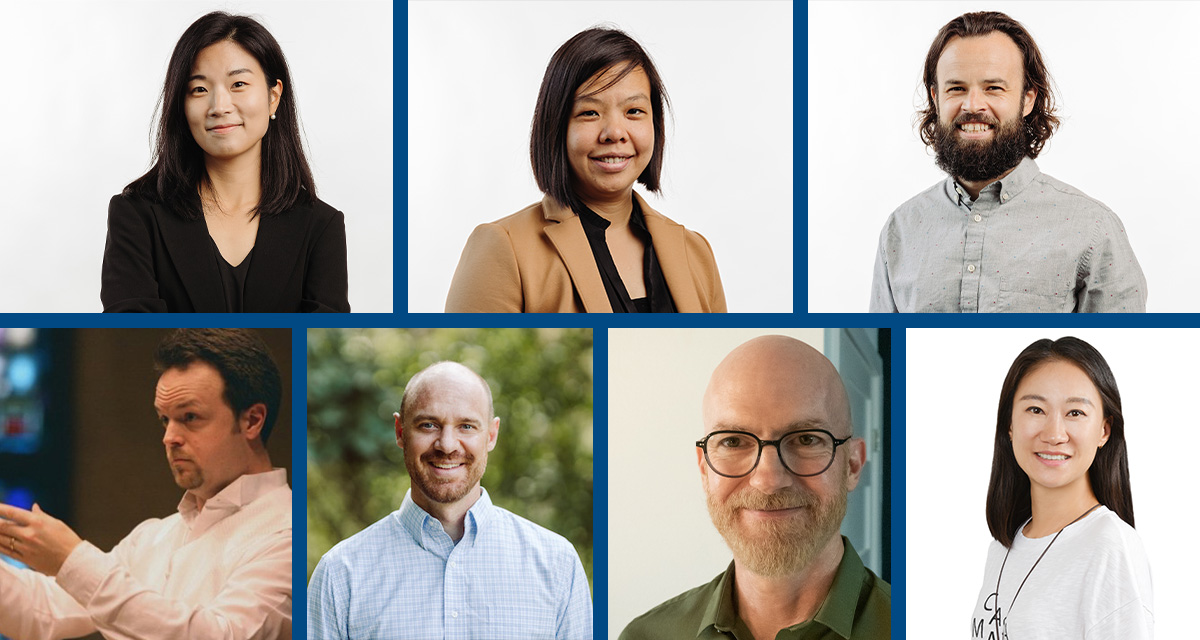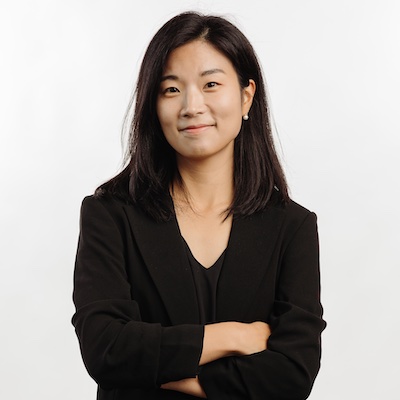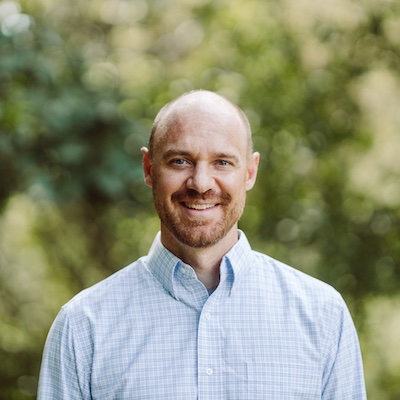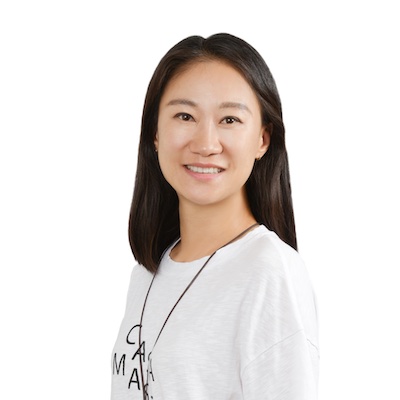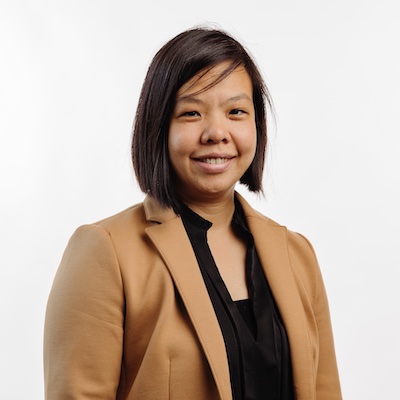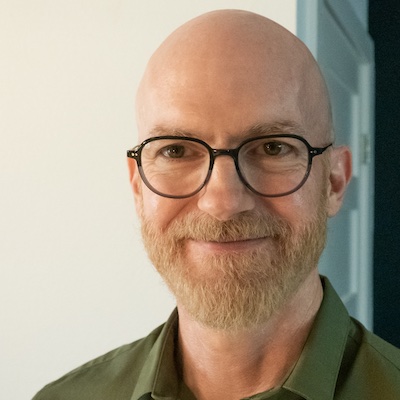Meet Seven of Gordon’s Newest Faculty Members
As students returned to campus this fall, they were joined by new experts on the faculty who, over the course of the coming years, will come alongside their academic pursuits and help them in shaping their vocation. This year, seven new professors across a range of disciplines are entering the scene, bringing new perspectives to their respective areas of study. The Bell caught up with them to get to know them:
Dr. Minji Kim
Assistant Professor of Music and Director of Choirs
As a child interested in music, Minji Kim never imagined herself as a conductor. To her young eyes, conductors were just people waving their arms around. But when she learned the depth of the conductor’s role during her undergraduate studies, Kim felt compelled by the overlap of artistic technique and scholarship—as she describes it, “how the music is expressed through one’s gestures.”
The more Kim conducted, she realized it was a profession that can combine her proclivity for teaching, passion for choral music and desire to connect with people. “Teaching is a part of a process to help someone to realize or learn new things,” she says. “In my conducting classes, I call my students ‘conductor-teacher.’ Everybody brings something to the table, and I am trying to prepare my students for the long learning journey ahead of their career by strengthening their learning abilities.”
Kim credits her artistic formation to influential mentors and experiences from her studies and involvement with organizations like the Baltimore Symphony Orchestra. Now she brings her personal, inquisitive classroom dynamic to Gordon’s Department of Music, where she will teach and serve as the conductor of College Choir and Women’s Choir.
Looking ahead to working with a new set of students, Kim says, “One thing I really want my students to learn is to fully immerse themselves in music. Every day we are surrounded by so many worldly things, and sometimes they can interfere with the deep experience of learning and performing. I want my students to have a bone-deep music-making experience through singing God-given words; the experience is so profound and extremely intense that students forget worldly surroundings, and they become the music themselves.”
Dr. Michael Ritter
Assistant Professor of Public Health
While browsing a half-priced bookstore for an MCAT prep book, Michael Ritter came across a book that took him in an unexpected new direction: The Tropic of Baseball. Reading about his favorite sport in the context of the Dominican Republic led him to baseball mission trips and medical service opportunities there. Ritter’s time in the Caribbean opened his eyes to health conditions outside of the United States, and he realized he could utilize his scientific interests to help keep populations healthy.
After pursuing a career in public health—which included co-founding and managing a nonprofit that provides safe water through a social enterprise in rural Haiti—and then teaching on the faculty at Houghton College, Ritter joins the faculty of Gordon’s new online Master of Public Health. As an assistant professor of public health, he hopes to show students how to connect faith with practice. Through the field, he says, “we are able to enter into the lives and worlds of people who are poor and make a difference.”
In his own research, Ritter has assisted public health managers to develop evidence-based strategies to support healthy behaviors, increase the cost-effectiveness and sustainability of programs, and improve the impact of faith-based efforts to promote health. Like he demonstrated through his work in Haiti, the work extends beyond immediate relief like water, and includes long-term strategies for populations to maintain productive systems in the future. “This includes thinking about different approaches and trying to take a rigorous, analytical approach to discover what would make the most sense both in terms of effectiveness, sustainability and cost-effectiveness.”
Through teaching and mentorship, Ritter wants to equip students with global and faith-filled perspectives. “I believe that taking a Christian lens to the problem of worldly disparities helps us recognize that God desires justice,” he says. “Playing a role in doing justice is something that really motivates me, as we see Christ giving up his riches and becoming one of us. This is not just a spiritual truth, but we also see that God desires it to be a material case as well.”
Dr. Mina Lim
Professor of Physics
For Mina Lim, physics is a love language. “God’s love motivates me to love the people and the wider society around me more tenderly and responsibly. As a committed engineer and scientist, I strongly believe that God gave me a mission to love and serve other people by spreading my knowledge,” she says. “It is my privilege to have the chance to convey my scientific knowledge, share my research and industry experience, and incorporate Christian principles in the classroom with Gordon students.”
Lim is originally from South Korea, where she worked as a semiconductor engineer for Samsung Electronics in South Korea for six years. Bookending that role, she earned a bachelor’s degree in chemical engineering from Texas A&M University and a Ph.D. in materials science and engineering from North Carolina State University. Her research interests include atomistic simulations of the structure and the properties of high-entropy materials. She uses atomic-scale computer simulations to develop a fundamental understanding of many-body quantum dynamics in condensed matter physics. These simulations are helping to lay the foundation for next generation of materials engineering and physics.
“Excellent science and engineering education is crucial for cultivating talented scientists and engineers who can fulfill the needs of diverse communities,” she says. “My personal, cultural, academic and industrial experiences have shaped my core values of diversity and my expression of shalom.”
Dr. Ryan Daley ’13
Assistant Professor of Psychology
For Ryan Daley ’13, understanding puzzles of the brain is a process that reveals deep truths. “If we truly are made in the image of God, it seems that one way to understand God, then, is to understand the human mind,” says the cognitive neuroscientist. Seeking the connections between science and faith are what motivate Daley to pursue research in the realm of moral psychology. “As we learn more about the human mind and social interaction,” he muses, “what does that reveal to us about God?”
Daley’s experience working at the memory disorders clinic of a veteran’s hospital sparked a desire to help aging populations maintain cognitive abilities as successfully as possible. Then his scholarly pursuits at Boston College looped back to his undergraduate years studying philosophy at Gordon. “A lot of the brain mechanisms that I was looking at are discussed in moral psychology literature,” he says. “I really became interested in this question: ‘How does memory content potentially influence how we make judgments about other people or decisions in our own life?’”
Beginning this fall, the new psychology faculty member will guide students through questions like it in courses on favorite topics, like social psychology, memory and research methods. As they tackle the complex ideas together, he hopes students learn more about their relationship with God and how to navigate their own emotions, “understanding what the science of emotion tells us about judgment and memory. How emotions and ethical issues fit together can reveal insights to us. Figuring out how we orient ourselves toward each other can potentially model how we should orient ourselves toward God.”
Dr. Ya Lin Huang
Assistant Teaching Professor of Music, Collaborative Pianist, Vocal Coach and Conductor of Men’s Choir
For Ya Lin Huang, music is connection. “Music connects people across cultures and brings people together through a variety of repertoire. We, as musicians, are blessed with the gift to share a universal language that can transport us to different eras across history. What is most exciting is that music is ever evolving. A piece composed 300 years ago through different interpretations can still inspire and hold resonance today for new generations of listeners.”
Huang herself has been evolving as a musician. From a young age, her love of music grew as she began to study piano and voice, along with the clarinet. She performed as a soprano, chamber musician, art song recitalist and choir pianist in Austria, Spain, France, Italy, Japan, China, Taiwan and throughout the United States. After becoming a Christian shortly after completing her master’s degree, Huang wanted share both her passion for music and her faith.
Now at Gordon, she is teaching diction and voice classes, directing the Men’s Choir and accompanying the College and Women’s Choirs. She is most looking forward to “being an advisor to students and walking alongside them as they embark on their journeys at Gordon.”
In that process, she hopes that her students “not only find spiritual and personal meaning from the music they perform, but also learn that music is meant to be shared with a community and is one of the purest expressions of God’s love for us.”
Dr. Gabe Southard
Associate Teaching Professor of Music, Conductor, Gordon Symphony Orchestra Conductor, Gordon Symphonic Band
Some are drawn to music simply by the sound. For others, it’s the thrill of creating something beautiful, or the message that it carries. For Gabe Southard, it’s the chance to interact with people and collaborate to make something new: “It is incredibly rewarding to work out the meaning of a piece and how it affects our lives with a group of people who are equally committed to bringing the music to life.”
Before coming to Gordon to teach in the Music Department, Southard served as the Director of Bands and Flute Instructor at Hope College in Michigan. One of his biggest career milestones was becoming a Pearl Flute Artist in 2020, along with releasing a CD of flute works by Dana Wilson (former composition teacher at Ithaca College). Now at Gordon, Southard is an associate professor of music and directs the Gordon Symphony Orchestra and the Symphonic Band.
Southard is most looking forward to connecting with his colleagues and connecting with students. His hope for his students is they will become better musicians, better people and better Christians with a deeper understanding that all parts of life are a gift from God by the time that they graduate.
Kelly Foster
Associate Professor of Art
New to Gordon’s Art Department this year is Associate Professor of Art Kelly Foster. With a background in architecture, he now teaches design courses in the art curriculum, and will help shape the design studio concentration within the art major.
After he had practiced architecture full-time for many years, Foster found himself longing to teach. Living in Austin at the time, he got certified to teach at the high school level in Texas, and had the opportunity of developing programs in architecture and graphic design from scratch as well as teaching engineering and animation courses.
“Spending over a decade teaching design to a diverse group of high school students was a gift and an honor,” he says, “yet I found myself wanting to teach with the depth and rigor of a college setting and wanting to openly integrate my faith with the content and practice of my teaching. When the opportunity to come teach design at Gordon came up, I was thrilled at the opportunity, honored to be able to join the community and teach here.”
Foster is no stranger to the North Shore, or Gordon College. While practicing architecture at a firm in Salem many years ago, he became familiar with the thriving intellectual and faith community at Gordon when he visited to give some lectures on architecture history, and architecture in the Bible. “I found the experience of engaging with the curious and earnest students at Gordon inspiring, and the experience stayed with me over the following decades.”
Foster’s enthusiasm for this next phase of life is palpable. “I get the privilege of introducing the complex dynamics of the design process to my students across various design media. In my decades of learning and practicing the design process I have found it to be a personal discipline of other-centered creativity that is integrally connected to our growth in faithfulness to Christ. My hope is that my students can, through our work here at Gordon, begin to take on the habits of mind of designers and begin a lifelong growth in design so that they can serve the communities in which they find themselves in ways that bring about glimpses of God’s kingdom. On top of all this, a major lesson I’ve learned in a life is that whatever I look forward to, God has something exceedingly more creative and exciting than I can imagine in store for me and for our life together in Christ.”
 The Bell
The Bell